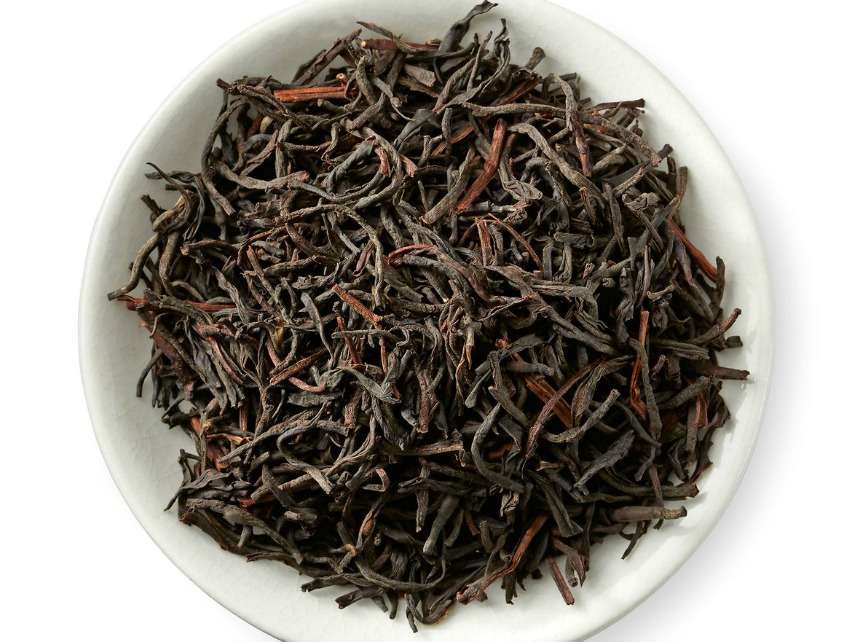Jury Rejects Damages for Victims of Pot Raid Based on Wet Tea Leaves
The jurors seem to have concluded that the bumbling drug warriors of Johnson County, Kansas, were incompetent rather than dishonest.

This week a federal jury declined to award any damages to Adlynn and Robert Harte, the Leawood, Kansas, couple whose home was raided in 2012 based on a field tests that supposedly identified wet tea leaves in their trash as marijuana. The verdict is not very surprising, since the only claim the Hartes were allowed to pursue required them to show that Johnson County sheriff's deputies lied about the results of the tests. There are other plausible explanations for the comically inept operation that led to an early-morning SWAT invasion and an increasingly desperate two-and-a-half-hour search for a nonexistent marijuana grow.
As 10th Circuit Judge Carlos Lucero noted in the July 25 appeals court ruling that allowed the Hartes' lawsuit to proceed, the field test the deputies say they used on the leaves is notoriously unreliable. "One study," Lucero wrote, "found a 70% false positive rate using this field test, with positive results obtained from substances including vanilla, peppermint, ginger, eucalyptus, cinnamon leaf, basil, thyme, lemon grass, lavender, organic oregano, organic spearmint, organic clove, patchouli, ginseng, a strip of newspaper, and even air." The label on the test kit warns that its results "are only presumptive in nature" and should be confirmed by laboratory analysis.
The deputies' failure to heed that warning could be seen as evidence that they lied about the field tests. But it is also consistent with a pattern of false urgency, ignorance, and sloppiness. The initial impetus for the raid was a tip from Sgt. James Wingo of the Missouri State Highway Patrol, who saw Robert Harte visit a garden supply store in Kansas City with his two kids on August 9, 2011. Harte was planning to grow vegetables with his son as a science project, but to Wingo he looked like a cannabis kingpin. Wingo sat on the supposedly incriminating information that Harte had bought indoor gardening supplies for seven months before sharing it with the Johnson County Sheriff's Office, just in time for "Operation Constant Gardener." That publicity stunt, conceived by Wingo, required pot raids on April 20, the unofficial stoner holiday. Hence the false urgency.
As for the ignorance, Deputy Mark Burns confessed that he had never seen loose tea before but thought, based on his training and experience, that it looked like marijuana leaves. A lab technician consulted after the raid disagreed, saying the leaves didn't "appear to be marijuana" to the unaided eye and didn't "look anything like marijuana leaves or stems" under a microscope. Burns himself did not deem the leaves suspicious the first time he pulled them out of the Hartes' garbage. But he thought they were worth testing when he returned a week later, 10 days before the raids demanded by Operation Constant Gardener. Sheriff Frank Denning, who authorized the search of the Hartes' home without laboratory confirmation of the field test results, claimed he had never heard such tests could generate false positives, despite four decades in law enforcement and despite the warning on the label. Maybe Burns and Denning were both lying, but it is at least as easy to believe they were simply uninformed, incompetent, and careless.
"The defendants in this case caused an unjustified governmental intrusion into the Hartes' home based on nothing more than junk science, an incompetent investigation, and a publicity stunt," Lucero concluded. "There was no probable cause at any step of the investigation. Not at the garden shop, not at the gathering of the tea leaves, and certainly not at the analytical stage when the officers willfully ignored directions to submit any presumed results to a laboratory for analysis. Full stop."
The Hartes plan to appeal the verdict against them. But even if they never win a dime in compensation for the trauma and embarrassment inflicted by the bumbling drug warriors of Johnson County, they have made redress easier for future victims of police abuse by lobbying for reform of their state's public records law, and they have shined a light on the pseudoscience, phony expertise, and reckless showboating that pass for professionalism among cops who dream up vanity projects like Operation Constant Gardener.


Show Comments (59)